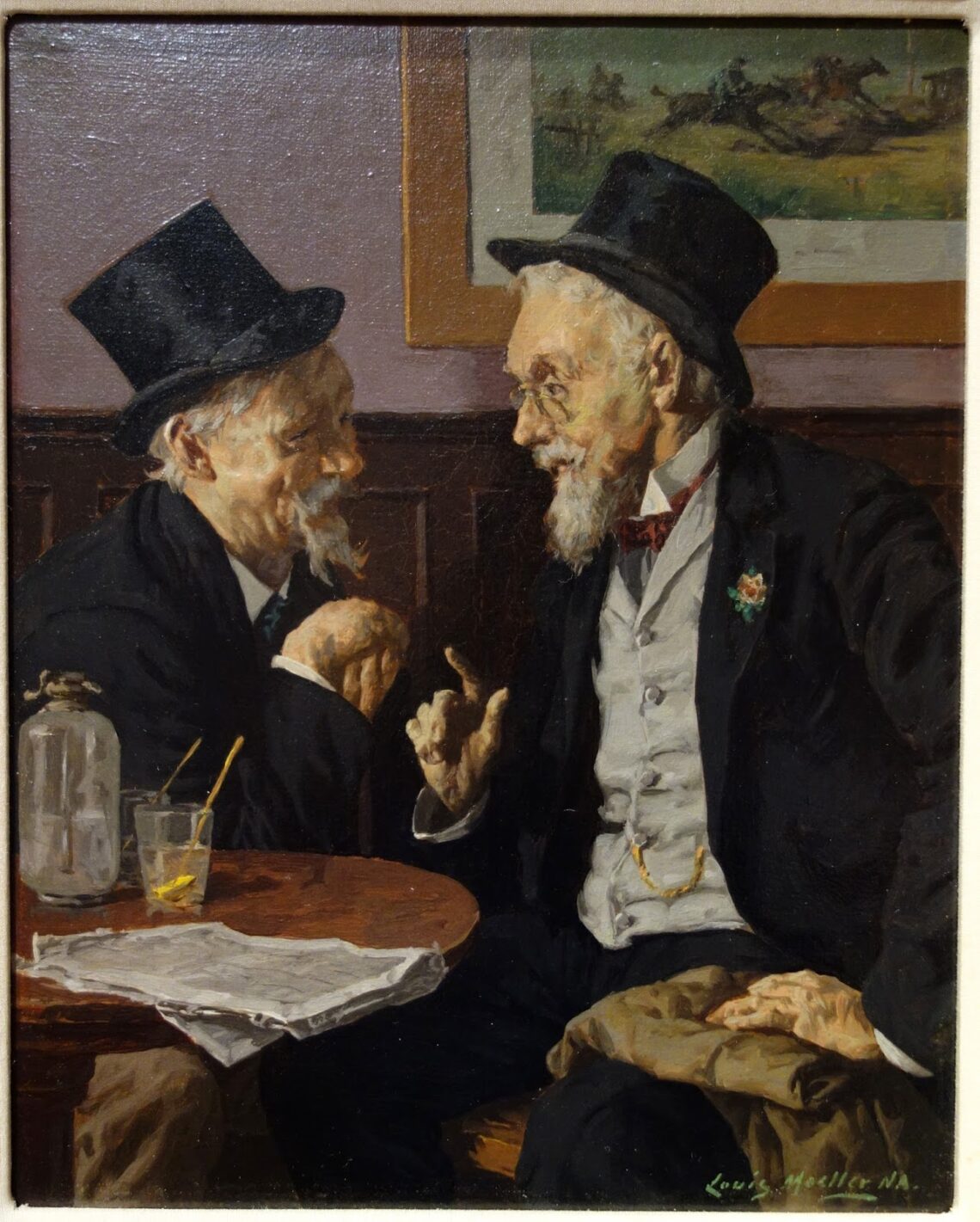“Aphasia, the loss of language following a brain injury, is devastating, and in severe cases family members may feel that the whole person is lost forever.” (Stephen Pinker, The Language Instinct, 2). Is fellowship possible without language? I don’t mean without the constant presence of language. Two people might not talk for a while but feel close to one another, but what if they never spoke to one another. What if, in the very nature of things, no one spoke? I suppose we could not know what our fellowship would be like. Would we be able to communicate in some way – by looking at each other? Perhaps we really…
-
-
Language, Mind(s) and Propositions in the Trinity
God speaks. The Bible records the first speech and God makes it. If the chronology of scripture is to be believed, God could speak prior to creation and, therefore, God can speak sans creation. He could use a language in eternity past. This seems clear: he is the first to utter a word (Gen 1); he determines the world and everything in it including all the languages, sentences, and what they mean prior to creation; and God, the Son, is identified as the “Word” that pre-exists creation (John 1). He doesn’t actually have to say anything, but he has to be able to express his thoughts in a language. On…
-
Tri-unity
Christian theism is, at least in part, a set of statements or propositions believers take to be true. The study of the coherence of Christian theism is the consideration of the coherence of that set of statements. It is not a study of whether or not those statements are true but whether or not if they are true there is any explicit or implicit contradiction within or implied by that set of propositions. A contradiction is a relationship between propositions such that if it is the case that p, then it cannot also be the case that ~p. It is commonly suggested that among the set of propositions Christian theists…
-
Communitarian Epistemology: Why Humans Need Each Other to Think.
Two men “triangulating” Knowledge acquisition is the process of extracting and organizing knowledge from a given source. Some naturalistically inclined philosophers have argued that community—minimally speaking, more than one functioning person who shares a common language with another person—is a necessary condition for knowledge acquisition. I will argue in favor of this view but will suggest that, given naturalism, the view is flawed. However, the view is compatible with theism and theism holds a solution to the problem facing the naturalist. I will argue that human higher-level thought is a minimal requirement for knowledge, but that thought and language are not possible without one another. Furthermore, since it is not…
-
Triunity and Thought
The Discussion by Guttuso God, in order to create the world, must be a multiplicity of persons. A person who has thought has a language. If there is no language then there can be no thinking. In order to create the world God would have to think. He would have to have intentional, highly complex thoughts about laws of nature, complex mathematical theorems, counterfactuals etc. In order to think about the world God would need a language. A picture is not a thought. A picture is of something, but not about anything. In order to have a language a person needs someone else to speak to. There could not be…
-
Augustine’s Epistemology
The central question for philosophy, says Cornelius Van Til, is the question of the one and the many or the universal and the particular.1 The question is central to the Greek philosophers especially as found in Plato. Plato, confronted with particularity in experience, advanced a universal realism, a realm of forms from which the soul is able to draw on ideas which connect particular things. For instance, a particular “chair” is connected (or participates) with a universal form, “chair.”2 The problem of the one and the many continues to plague philosophy in the modern period. David Hume contends that universals are nominal, found solely in discourse about particulars.3 The question…
-
A Defence of Belief in the Trinity
Many objections leveled at the Christian are related to whether or not particular Christian doctrines are coherent. One such doctrine is the doctrine of the Trinity. How can a Christian maintain her belief in a statement asserting that there is one divine being who is three divine beings at the same time? Formulations of the doctrine in creeds, doctrinal statements and systematic theologies attempt to smooth out apparent contradictions while remaining consistent with scripture. James Anderson argues that any treatment of the doctrine of the Trinity faces a dilemma – to remain orthodox and face paradox or to banish paradox and embrace the heterodox. Anderson concludes that “no writer from…
